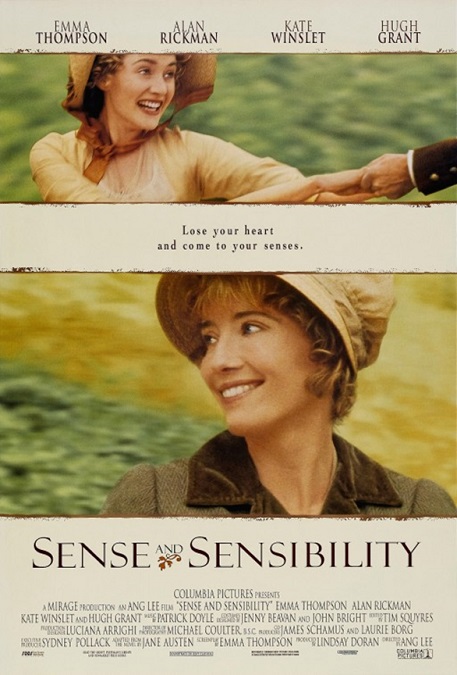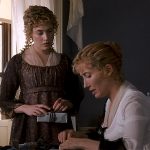
Sense and Sensibility – 1995
At first, I thought this was yet another Merchant-Ivory period-drama, but I was wrong. It was still slow and underwhelming, still had several of the same actors, but the screenplay was actually written by its lead actress, Emma Thompson. Jane Austin is one of the most beloved authors of the 18th century. She only wrote 6 major novels, of which Sense and Sensibility is the 1st. It is a credit to Thompson’s skills as the author of the screenplay to note that this was her first attempt at writing a film script.
The fact that the film was slow with a lack of intensity was not Thompson’s fault. It was simply the fault of the genre. If you are a person who enjoys the works of Jane Austen, then you will love this movie. It was a wonderful addition to the plethora of other such films and TV miniseries. But if you are not excited about period dramas, then you’ll see the movie as I do. It was entertaining enough, though nothing to write home about.
When Henry Dashwood, played by Tom Wilkinson, dies, his entire inheritance goes to his only son, John, played by James Fleet, and his wife, Fanny, played by Harriet Walter. He makes John promise to take care of his step-mother and three step-sisters, but he is easily swayed to greed by his evil, money-hungry wife. Mrs. Dashwood, played by Gemma Jones, must adapt to life with very little money for herself and her daughters, Elinor, played by Thompson, and her younger siblings, Marianne, played by Kate Winslet, and Margaret, played by Emilie Francois. Now, the young girls must rely on suitable marriages to obtain financial security.
Elinor meets and falls in love with Fanny’s brother Edward Ferrars, played by Hugh Grant. But in order to put a stop to their romance, Fanny drives the Dashwood women away. They go to live in the country in Devonshire. While there, the beautiful Marianne catches the eye of two men, the older Colonel Brandon, played by Alan Rickman, and the dashing young John Willoughby, played by Greg Wise. Marianne falls head–over-heels for Willoughby, though the Colonel knows him to be a womanizing cad. This is eventually revealed when Willoughby spurns the poor and penniless Marianne to marry a wealthy woman. She is heartbroken, but no more so than Elinor when she learns that her Edward is engaged to a young woman named Lucy Steele, played by Elizabeth Spriggs.
And there’s the set-up. Who will end up with whom? Who will end up alone? And that’s pretty much it. The drama isn’t intense or overly intriguing. It wasn’t bad, just slow and shallow. That being said, the acting was pretty good, and the costumes were praised for their realism. The music was passible, but ultimately unmemorable. However, in addition to the Best Picture nomination, it was recognized for Best Actress for Thompson, Best Supporting Actress for Winslet, Best Cinematography, Best Costume Design, Best Original Score, and its only win, Best Adapted Screenplay for Thompson.
In my research, I found that the novel’s title came from the personalities of the two main characters, Elinor and Marianne. Elinor is shown as a guarded, and almost repressed woman who tends to use her head more than her heart, while Marianne is the exact opposite. Sense can be interpreted as “sensible”, represented by the elder sister, while sensibility can be interpreted as “sensitivity”, represented by the younger.
And I also learned that Thompson, while remaining true to most of the source material, did take some creative license in order to make the film more dramatic, more accessible to a modern audience, and more appropriate for the medium of film. Since the male characters in the novel are less developed, Thompson beefed up their parts so the audience would actually care about who the girls ended up falling in love with. But things like that are needed for a good novel to film transition.
And I also have to make mention of a pair of supporting characters, played by actors who I recognized and liked. Hugh Laurie and Imelda Staunton played Mr. and Mrs. Palmer, distant relatives of the Dashwoods. They both did very well in their respective roles. And I also have to make special mention of Harriet Walter for her wonderful performance. Yeah, she was one of the bad-guys we weren’t supposed to like, but she did it so well.
If you like period romances, you’ll love this movie. But I have to admit. I have been watching so many of them lately that I have grown a little tired of them. Room with a View, Howards End, and The Remains of the Day have all been good films, as was Sense and Sensibility. I’m not denouncing the film. But while I have always liked period pieces, I have rarely loved them.








